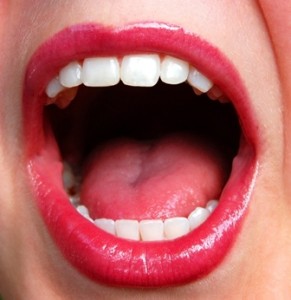Newsletter
Oral Cancer Prevention
March 19th 2013
Itâs common knowledge that the use of tobacco products can increase your overall risk of oral cancer, but there are other factors at play as well. Regular exercise, proper diets, and good habits are the
 building blocks for any healthy lifestyle, but they can significantly lower the possibility of many diseases. As always, regular brushing, flossing, and other beneficial dental care are your best tools for preventing the development of many diseases, and can aid in the fight against cancer. If you are already affected by oral cancer, this information may also help during your treatment and after.
building blocks for any healthy lifestyle, but they can significantly lower the possibility of many diseases. As always, regular brushing, flossing, and other beneficial dental care are your best tools for preventing the development of many diseases, and can aid in the fight against cancer. If you are already affected by oral cancer, this information may also help during your treatment and after.
Risk Factors for Oral Cancer
Tobacco usage, especially smokeless tobacco, such as chewing tobacco, is the only known cause of oral cancer. The best way to prevent oral cancer from developing is to completely stop the use of tobacco products. We know that it can be hard to quit this addictive habit, but itâs one of the best things that you can do for your health, and the health of your loved ones (secondhand smoke is a proven cause of other types of cancer). Your dentist and doctor can give you great advice and other tips to help you quit using tobacco products. Please turn to them for advice and let them know that you want to quit. They will be 100% supportive, which can really make a difference in your quest to stop!
If you drink three or more alcoholic beverages a day, you have a greater chance of getting oral cancer, as well as additional health problems. Drinking and smoking often coincide, which may attribute to the high cancer rates in those who use drink. However, studies have shown that frequent binge drinking also corresponds with an unhealthy diet, which can increase oneâs risk for cancer. The best way to control these factors is to limit alcoholic beverage intake, and choose healthier foods. Leafy, green vegetables, foods which are high in vitamin B, green tea, and other antioxidant-rich foods have been continually linked to fighting or preventing cancer. You should avoid frying the vegetables as well, as this form of cooking effectively zaps the foods of any nutritive content.
Vitamin D is great for overall health, and has been known to lessen chances of acquiring cancer. High levels of vitamin D enable bones and teeth to absorb the calcium they need to stay strong and healthy. The natural way of getting vitamin D is from safe levels of sun exposure. Unfortunately, sun exposure is a risk factor for oral cancer on the lips, and for other types of cancer on other places in the body. Regular sunblock and limited time in the sun can help deter these unwanted effects. If you want to play it safe or if youâre exposure to the sun is already limited, you may want to talk to your dentist or doctor about vitamin D supplements. Adding these to your healthy diet could help you avoid oral cancer.
Need help? Donât hesitate to ask!
If youâre unsure about your chances of developing oral cancer or other cancers, please turn to your healthcare professional. Your dentists and doctors want whatâs best for your well-being, and should be able to provide helpful tips, or refer you to a trusted colleague who can. Itâs never too late to improve your health!
Protection for Your Smile This Spring and Summer
March 4th 2013
 Now that weâre heading into warmer weather, people are likely to spend more time outdoors doing a variety of activities, including sports. Taking advantage of the higher temperatures to get some exercise and to spend time with friends is a good thing, of course, but athletes should keep a few pointers in mind related to their oral health.
Now that weâre heading into warmer weather, people are likely to spend more time outdoors doing a variety of activities, including sports. Taking advantage of the higher temperatures to get some exercise and to spend time with friends is a good thing, of course, but athletes should keep a few pointers in mind related to their oral health.
Donât forget your mouthguard
A large percentage of sports-related injuriesâperhaps as many as 40%âinvolve the face. Thatâs why wearing a mouthguard is so important. With a custom-made mouthguard from your local dentist, your chances of experiencing tooth loss are almost completely eliminated. Itâs also been shown that a custom-made mouthguard can significantly reduce the risk of having a concussion. All of this can, in turn, improve your performance and keep you safer as you play, no matter what your sport is.
Limit your consumption of sports drinks
Sports drinks may have a refreshing taste, but theyâre not good for your smile. Thatâs not just because they contain high amounts of sugar; itâs also because of their acidity. Consuming too many sports drinks can eventually lead to tooth erosion, hypersensitivity, and staining. To protect your smile, limit how many sports drinks you consume. You will also want to use fluoride toothpaste and even a fluoride mouthwash to strengthen your smile by re-mineralizing teeth.
Stay hydrated with water
If acidic sports drinks can damage teeth, fluoridated water can help you strengthen them. Thatâs because fluoride draws important minerals and nutrients to teeth. Outside of that, water can help you keep your smile clean and will help you keep your keep your body cool and hydrated. Best of all, you can drink as much as it as you want without any ill effects.
Do you questions about how else you can protect your smile and your body this summer as you hit the field? Talk to your local dentist today.
Losing Weight has Surprising Benefits for Your Smile
February 19th 2013
 The health benefits of weight loss are many. Being overweight can contribute to heart disease, heart attack, joint pain, and diabetes. And now, research shows that being overweight can put you at risk for another type of health problem: gum disease. You may not connect your weight with your oral health, but the truth is that your smile can benefit from you maintaining a healthy weight.
The health benefits of weight loss are many. Being overweight can contribute to heart disease, heart attack, joint pain, and diabetes. And now, research shows that being overweight can put you at risk for another type of health problem: gum disease. You may not connect your weight with your oral health, but the truth is that your smile can benefit from you maintaining a healthy weight.
How does your weight affect your risk of gum disease? Gum disease is an inflammation of the gums, and cytokines are proteins produced by the body that have inflammatory properties. Overweight individuals produce more cytokines, which can then cause gum disease. With a third of Americans suffering with weight problems and over half experiencing gum disease, getting a handle on these two health risks is a big goal for dentists and other health professionals.
How can you lower your risk of gum disease? Here are a few simple steps you can take that will make a big difference.
Brushing and Flossing
The single best thing you can do to lower your risk of gum disease is to brush twice a day and floss once a day. Many people skip the flossing, but this is an essential part of your gum disease prevention routine. Brushing alone cannot get below the gum line or between teeth, and itâs below the gum line that gum disease flourishes. When you floss, you can remove the plaque and bacteria that hides in the gum pockets and inflames the soft tissues of your mouth. Donât skimp on the flossing; make sure to floss once every 24 hours.
Visiting the Dentist
The dentist can also help prevent gum disease with professional cleanings twice a year. Our team can remove hardened plaque and damaging tartar that you may have trouble clearing away, preventing these substances from causing both decay and gum disease. Your dentist can also spot the earliest warning signs of a problem and provide direction on how you can stop the problem from becoming worse.
Diet and Exercise
Lastly, maintain healthy diet and exercise habits to keep your weight at an optimal level. The more we learn about the body, the more we know that various factors affect every area of your health, and with the new research showing that being overweight puts you at increased risk of gum disease, we want to make sure that youâre doing all you can for every part of your body, including your smile!
5 Mistakes You Might Make While Flossing
February 5th 2013
 Flossing is a crucial part of dental hygiene, and one that shouldnât be taken lightly; after all, itâs a tried-and-true method for getting rid of stubborn food particles that settle in hard-to-reach places between teeth, as well as an effective way to disrupt cavity-causing bacteria and keep them getting too comfortable. Of course, you might be thinking: how hard is it to drag some string between your teeth? Harder than you might think. Countless people make casual errors every day when flossing, and while it might not seem like a big deal at the time, you could find yourself in need of fillings or other restorative dental work before you know it. Here are five common mistakes that are made during flossing that you should watch out for:
Flossing is a crucial part of dental hygiene, and one that shouldnât be taken lightly; after all, itâs a tried-and-true method for getting rid of stubborn food particles that settle in hard-to-reach places between teeth, as well as an effective way to disrupt cavity-causing bacteria and keep them getting too comfortable. Of course, you might be thinking: how hard is it to drag some string between your teeth? Harder than you might think. Countless people make casual errors every day when flossing, and while it might not seem like a big deal at the time, you could find yourself in need of fillings or other restorative dental work before you know it. Here are five common mistakes that are made during flossing that you should watch out for:
When You Use the Same Section of Floss the Entire Time
As we said above, flossing removes harmful bacteria from between your teeth. Why would you want to move that bacteria around your mouth into new areas instead of getting rid of it altogether? It might seem wasteful, but when you use the exact same area of floss on multiple teeth, you can replace plaque thatâs already been removed into a brand-new home.
When You Skip the Teeth in the Very Back
While some of your teeth may have an open space next to them, itâs still important to work the floss behind them and do some cleaning. By doing this, you can make sure to remove bacteria that sometimes finds its way between your tooth and gums.
When You Snap the Floss between Your Teeth
Some of your teeth have very tight adjoining spaces. When you notice an area like this, try not to force the floss so that it jumps down against your gums. Instead, work the floss back and forth until it slides through. Snapping the floss not only hurts your gums, but it can also cause them to recede. Gum disease might not be far behind, too.
When You Quit Because Your Gums Start Bleeding
We understand that the sight and taste of blood can be scary sometimes, but donât worry! Youâre not hurting your gums. Youâre just suffering from gingivitis, a condition that happens when your body sends more blood to the gums so that they can fight off growing plaque. You can alleviate this condition by removing that plaque with flossing. After a few days of dedicated flossing, your gums should return to normal!
When You Floss Aimlessly Without Keeping Track Of Your Teeth
You have a fair amount of teeth, and when youâre flossing, it can be easy to become distracted and accidentally skip one or two. Creating a plan that you follow whenever you floss will guarantee that you leave no area untouched. As long as you stick to it, you shouldnât have any problems!
Just be sure to watch out for these common mistakes, and keep flossing! Your teeth will thank you.
Cavity-Fighting Effects of Cheese
January 31st 2013
 Choose cheese for your next sandwich ingredient or salad-topper! As a child, everyone has heard parents and other adults lecturing on the importance of eating vegetables and drinking milk to grow up big and strong. But did you know that eating certain types of cheese at any age can also help you stay healthy?
Choose cheese for your next sandwich ingredient or salad-topper! As a child, everyone has heard parents and other adults lecturing on the importance of eating vegetables and drinking milk to grow up big and strong. But did you know that eating certain types of cheese at any age can also help you stay healthy?
Multiple studies have shown that chewing processed cheese can prevent cavities and other decay from taking place. During a clinical study performed by Dows Institute for Dental Research, it was shown that after chewing just a single cube of cheese, a toothâs surface re-hardened and strengthened by over 100%, thanks to the cheeseâs mineral-boosting components. Itâs understood that regular servings of this dairy product prevent the demineralization of teeth, and will help boost the remineralization process. This means that enamel, the protective layer of your pearly whites, is reinforced, and can better shield your teeth from decay-causing bacteria.
It doesnât hurt that cheese contains substantial amounts of calcium, which has long been known to prevent osteoporosis and keep bones resilient.
Cheeses that can protect and increase your oral health include:
- Brie.
- sharp cheddar.
- Swiss.
- Gouda.
- Bleu.
Think twice about skipping the cheese on your next sub! There are many benefits of this delicious snack that can improve your oral health. Many doctors also praise its metabolism-boosting effects. You donât have to cut it completely out of your diet, so those of you who have managed to stick with your New Yearâs resolutions can incorporate moderate amounts of dairy intake back in your daily life. (And congratulations on sticking with your goals).
As with any meal, itâs still important to brush and floss after eating. If youâre concerned about your toothâs sensitivity for any reason, or suspect that you may have a cavity, please contact your dentist at the earliest convenience. No food, diet, or beverage can replace the educated and skilled eye of your dental professional.
Dr. Tara Dallmann provides general, cosmetic, restorative, and sedation dentistry services for their Independence Kentucky patients. Gentle Dental Care serves the entire tri-state area including Taylor Mill, Walton, Cincinnati, and Covington areas. Patients have come from as far away as Loveland Ohio to Dry Ridge Kentucky to receive that special Gentle Dental Care touch. If you would like compassionate, comfortable dentistry please make your appointment now!





